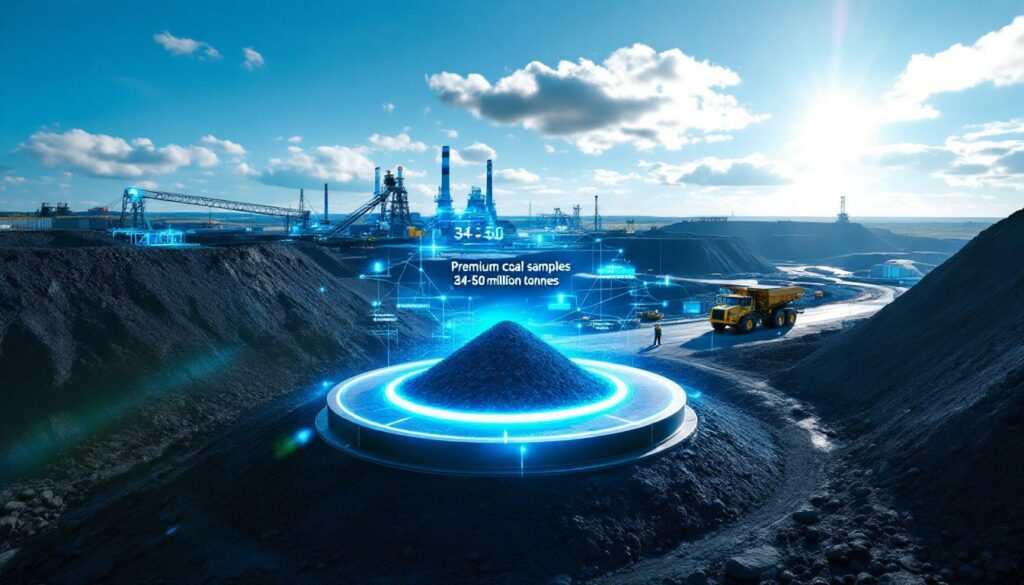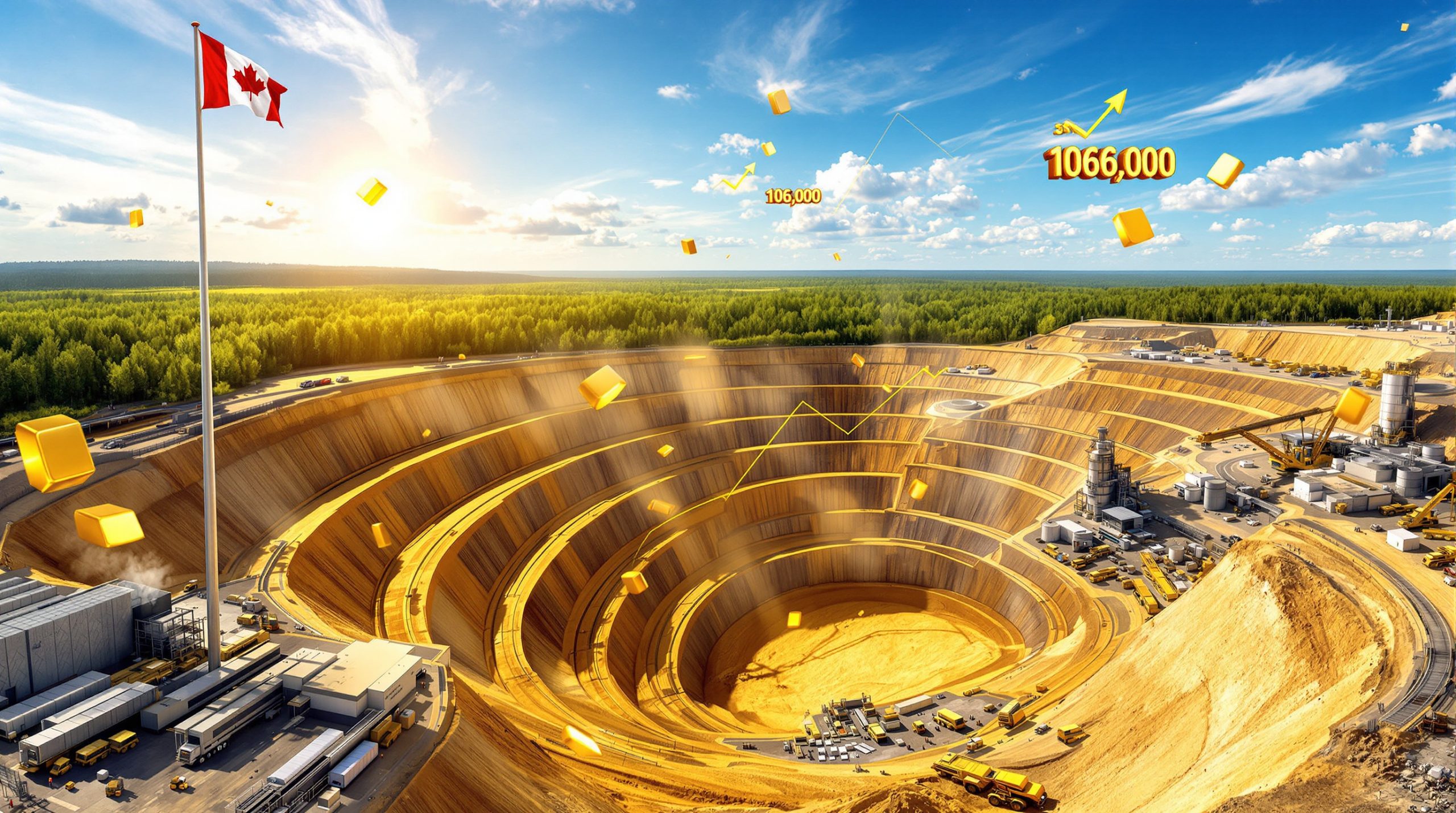Metallurgical Coal Mining Initiative in Alabama: Transforming America's Steel Industry
The heart of American steel production is about to get a significant boost as MetWave Mining Co. and Contract Highwall Mining (CHM) forge a strategic partnership to tap into Alabama's rich metallurgical coal reserves. This groundbreaking initiative, centered in Jackson County, represents a crucial step toward strengthening domestic supply chains and revitalizing local economies through responsible resource development. The metwave and chm begin coal mining initiative in alabama is poised to make a substantial impact on the national steel industry.
What is the MetWave Mining Initiative in Alabama?
The MetWave Mining initiative marks a significant advancement in Alabama's metallurgical coal sector, aiming to harness valuable coal reserves essential for steel production. This partnership between PJKT 72 and Contract Highwall Mining (CHM) targets Jackson County's premium coal deposits, positioning Alabama as a crucial contributor to America's industrial future.
Phase One Launch Details
Phase One of the initiative began with the official launch of metallurgical coal prospecting in Jackson County, Alabama. This critical first step establishes the foundation for potential large-scale mining operations that could transform the region's economic landscape.
MetWave Mining Co., a wholly-owned subsidiary of PJKT 72, leads the initiative with strategic vision and financial backing. The company has authorized CHM to file the necessary mining permitting insights with Alabama state authorities, initiating the formal regulatory process.
To ensure technical excellence and regulatory compliance, McGehee Engineering, an Alabama-based firm with extensive regional expertise, has been engaged to handle geological mapping and technical documentation. Their involvement brings local knowledge and technical credibility to the project.
Strategic Importance of the Project
The MetWave-CHM partnership addresses several critical national priorities:
- Strengthening domestic metallurgical coal supply chains by reducing dependence on imported resources
- Creating sustainable, high-paying jobs throughout the mining value chain in a region that benefits from industrial development
- Providing essential fuel for American steelmaking operations, supporting manufacturing resurgence
- Establishing a model for responsible resource development with enhanced environmental monitoring
"This initiative represents more than just a mining operation—it's about rebuilding America's industrial foundation with domestically sourced materials," notes industry analysts familiar with the project's scope.
How Significant Are the Alabama Coal Reserves?
The Jackson County site represents one of the Southeast's most valuable untapped metallurgical coal deposits. Unlike thermal coal used for electricity generation, metallurgical coal (also known as coking coal) is a critical ingredient in steel production—an industry where quality and consistency are paramount.
Reserve Estimates and Site Specifications
The prospecting area encompasses 5,888 acres in Jackson County, with preliminary geological assessments indicating substantial potential:
- Estimated reserves between 34-50 million tonnes of premium metallurgical coal
- High carbon content with low impurities, making it ideal for steelmaking
- Strategic location with access to transportation infrastructure for efficient distribution
- Geological continuity suggesting consistent quality throughout the deposit
McGehee Engineering's prospecting efforts will validate existing geological models through systematic sampling and analysis, providing a comprehensive understanding of the reserve's characteristics and economic viability.
Economic Impact Potential
The development of these reserves promises substantial economic benefits:
- Creation of direct mining jobs with above-average wages for the region
- Support for auxiliary industries including transportation, equipment maintenance, and technical services
- Reduced reliance on metallurgical coal imports, improving America's trade balance
- Strengthened domestic steel manufacturing capabilities through reliable raw material supply
- Enhanced tax base for local communities in Jackson County and surrounding areas
A mining operation of this scale typically generates 3-5 indirect jobs for every direct mining position, amplifying the economic impact throughout the regional economy.
Who Are the Key Stakeholders in the Alabama Mining Project?
The initiative brings together complementary expertise from multiple organizations, creating a coalition capable of navigating the complex technical, regulatory, and operational challenges of modern mining.
Primary Project Partners
PJKT 72 serves as the parent company and sole member of MetWave Mining Co., providing strategic direction and capital resources essential for project development. Their experience in resource development brings valuable industry knowledge to the partnership.
Contract Highwall Mining (CHM) acts as the operational partner responsible for filing prospecting permits and implementing exploration activities. CHM brings specialized mining expertise and operational capabilities to the project.
MetWave Mining Co. functions as the on-site project leader, coordinating daily operations and serving as the public face of the initiative. As a wholly-owned subsidiary of PJKT 72, MetWave benefits from corporate support while maintaining operational flexibility.
Supporting Organizations and Landowners
McGehee Engineering, an established Alabama-based firm, manages technical documentation and geological assessment. Their regional expertise and understanding of local geology provides essential technical credibility.
Keller Logging Company, the surface land owner, has provided critical property access for exploration activities. Their cooperation demonstrates the potential for harmonious relationships between surface rights and mineral rights holders.
Allen Keller, the newly appointed CEO of Keller Logging, has facilitated cooperative access arrangements, demonstrating how leadership can bridge potential conflicts between surface operations and subsurface development.
What Makes This Coal Mining Initiative Innovative?
The MetWave-CHM partnership transcends traditional mining approaches by incorporating advanced mine planning and environmental frameworks that position the project at the forefront of responsible resource development.
Blockchain-Based ESG Platform
A standout innovation is the implementation of a comprehensive blockchain-based Environmental, Social, and Governance (ESG) platform that revolutionizes accountability in mining operations:
- Digital verification system creating immutable records of coal reserves and extraction volumes
- Precise tracking of carbon content throughout the product lifecycle from extraction to end-use
- Transparent ownership documentation eliminating disputes and ensuring proper attribution
- Foundational framework for future carbon credit compatibility as markets evolve
This technological approach creates unprecedented transparency in an industry often criticized for opacity and establishes new standards for accountability.
Environmental and Sustainability Approach
The initiative implements forward-thinking environmental practices that align with sustainable mining transformation principles:
- Coal Mitigation Verification Initiative integration for comprehensive environmental monitoring
- Enhanced ESG reporting capabilities that exceed regulatory requirements
- Positioning Alabama as a leader in traceable and accountable energy production
- Strategic balance between industrial needs and environmental considerations
This holistic approach acknowledges the responsibility of resource developers to minimize environmental impact while maximizing economic benefit.
What Legal and Regulatory Steps Are Being Taken?
The MetWave-CHM partnership has adopted a methodical approach to regulatory compliance, ensuring all operations meet or exceed applicable standards.
Permitting and Compliance Process
The initiative is proceeding through established regulatory channels with careful attention to procedural requirements:
- Prospecting permit filing with the State of Alabama's regulatory authorities
- Comprehensive geological mapping to establish baseline conditions
- Detailed technical documentation prepared to meet regulatory standards
- Strict adherence to state mining regulations throughout all phases
According to the Bureau of Land Management, the agency is currently seeking public input on proposed metallurgical coal leasing in Alabama, which could impact the project's regulatory pathway.
Land Access Arrangements
The project benefits from cooperative arrangements with surface property owners:
- Structured coordination with Keller Logging as the surface property owner
- Implementation of Alabama mineral rights access laws that balance competing interests
- Systematic approach to subsurface mineral estate development
- Cooperative framework established between mineral rights holders and surface owners
These arrangements demonstrate how traditional tensions between surface and mineral rights can be addressed through thoughtful engagement and mutual respect.
How Will This Project Impact America's Industrial Resurgence?
The metallurgical coal from this project will serve a specific and critical role in American manufacturing, particularly in supporting steel production—a cornerstone of industrial capability.
Strategic Supply Chain Implications
The development of domestic metallurgical coal resources addresses several strategic priorities:
- Reducing dependence on foreign sources, enhancing energy security
- Strengthening domestic steel production capabilities through reliable raw material supply
- Supporting manufacturing sector resilience by stabilizing input costs
- Creating integrated industrial supply networks that minimize transportation costs and environmental impact
These benefits extend beyond the immediate project to strengthen America's overall industrial position. Recent Alabama Reflector reporting indicates that mine expansions in Alabama may test federal policies on private extraction of publicly owned coal.
Future Development Roadmap
The initiative follows a structured development approach:
- Phase One focuses on exploration and validation of resource estimates
- Subsequent phases will include full-scale mine development based on exploration results
- Long-term operational planning will be guided by geological findings
- Integration with broader American industrial strategy ensures alignment with national priorities
This phased approach allows for adjustment based on findings while maintaining clear direction toward full development, consistent with ongoing mining industry evolution.
FAQ About the Alabama Metallurgical Coal Initiative
What distinguishes metallurgical coal from thermal coal?
Metallurgical coal (also called coking coal) plays a crucial role in steel production due to its specific chemical and physical properties. Unlike thermal coal used in power generation, metallurgical coal must meet stringent quality requirements:
- Higher carbon content (typically above 85%) with lower moisture
- Low sulfur and phosphorus levels to prevent steel impurities
- Strong coking properties that create the carbon structure needed for iron reduction
- Ability to withstand high temperatures without deteriorating
When heated in the absence of oxygen (carbonization), metallurgical coal forms coke—a porous, carbon-rich material essential for blast furnace operations in steel mills. This specialized application makes metallurgical coal significantly more valuable per ton than thermal coal.
How does blockchain technology enhance coal mining operations?
The implementation of blockchain technology transforms traditional mining operations in several key ways:
- Immutable record-keeping creates an unchangeable history of extraction, processing, and transportation
- Real-time tracking of coal quality parameters throughout the supply chain
- Enhanced transparency for regulators, customers, and community stakeholders
- Reduced documentation disputes through consensus verification
- Simplified certification of environmental compliance and quality specifications
By providing a secure, distributed ledger that records every transaction and quality measurement, blockchain creates unprecedented accountability in an industry traditionally challenged by verification issues.
What economic benefits might Jackson County see from this initiative?
Jackson County stands to receive substantial economic advantages from the development of metallurgical coal resources:
- Direct employment in mining operations with wages typically exceeding regional averages
- Indirect job creation in supporting industries like equipment maintenance, transportation, and services
- Increased tax revenue for local governments supporting infrastructure and public services
- Business development opportunities for local suppliers and contractors
- Potential downstream manufacturing growth related to steel production and metallurgical coal processing
Communities near similar mining operations have experienced significant economic revitalization, with benefits extending well beyond the direct mining workforce.
How does this project align with broader energy transition goals?
While focused on coal extraction, the initiative incorporates several elements that align with energy transition priorities and mining decarbonisation benefits:
- Advanced ESG tracking provides unprecedented environmental accountability
- Carbon monitoring systems establish baselines for future improvement
- Transparency frameworks enable verification of environmental claims
- Resource efficiency innovations minimize waste and environmental impact
These innovations help bridge traditional energy resources with modern environmental standards during industrial transition periods, acknowledging that metallurgical coal remains essential for steel production even as energy systems evolve.
Important Note:
Metallurgical coal serves a fundamentally different purpose than thermal coal used in electricity generation. As electrification advances, demand for steel—and therefore metallurgical coal—is expected to remain strong for infrastructure development, renewable energy components, and transportation systems.
The metwave and chm begin coal mining initiative in alabama represents a significant step forward in responsible resource development, balancing industrial needs with environmental considerations while strengthening America's manufacturing capabilities. By focusing on metallurgical coal—an essential ingredient in steel production—this project contributes directly to domestic industrial capacity while implementing innovative approaches to environmental stewardship.
Want to Get Ahead of the Next Major Mining Discovery?
Discover how significant mineral discoveries like the Alabama metallurgical coal initiative can lead to substantial returns by exploring Discovery Alert's dedicated discoveries page, where our proprietary Discovery IQ model provides real-time alerts on ASX mineral opportunities before the broader market moves.




